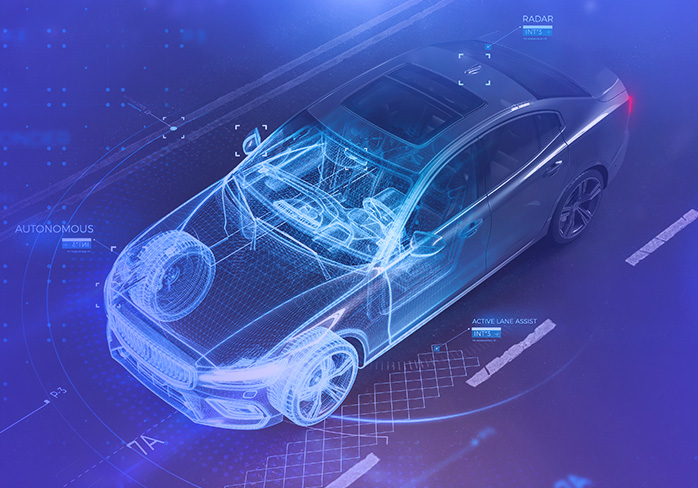There’s no doubt technology can have a profound impact on everyday life. From personal computers and cell phones to the internet and IoT devices, the world is now more connected and automated than ever.
Today, more people live in cities than in humanity’s history. By 2050, 68% of the world’s population will live in urban areas. To support the
population growth, cities are looking toward technology to be smarter about how they use resources and to improve peoples’ lives.
Here are just four ways technology is revolutionizing cities and improving our quality of life:
1. Connected Vehicles Reduce Traffic Congestion
Transportation is a major pain point for cities. Not only is it a leading
source of pollution, but it can also congest city centers and slow
progress to a halt. In 2019, many cities started to discourage car use
and even began prohibiting vehicles from busier areas.
Banning vehicles won’t permanently solve the problem. Shipments still need to be delivered and people still need to get around. Cities are looking for long-term solutions.
Many smart cities, like Haifa, are using connected vehicles to manage transportation around the city. Cars both old and new are fitted with IoT devices and sensors to collect data about the vehicle:
- Driver behavior
- Engine status
- Location
- Movement/speed
- Vehicle performance
When integrated with other connected cars around the city, it forms an intelligent, unified, city-wide traffic network.
These sensors can communicate with other traffic management systems like stoplights to create a more efficient, seamless driving
experience. They can improve traffic congestion, safety, and energy consumption throughout the city.
2. Camera and Sensor Networks Improve Public Safety
Smart cities are all about collecting and analyzing data. Many smart cities use a vast network of cameras and sensors to monitor the city and collect information about events like traffic congestion and crime.
While being on-camera might concern some people, it has a positive impact on public safety.
These smart networks can chart crime in real-time and form
predictive maps. Law enforcement can use this information to prevent crimes with fewer resources. When an emergency does occur, smart solutions can help call centers operate more efficiently and clear paths for emergency responders using stoplights for safer, faster response times.
3. Smart Power Grids Reduce Energy Usage
Until sustainable energy sources become viable for citywide power, it’s important to efficiently manage energy usage to reduce carbon emissions and protect the environment. Smart cities are starting to use networks of sensors to manage energy throughout the city.
These sensors are spread throughout the city to track the energy distribution and demand. Using this information, utilities can see where power is needed most and where it can be reduced. They can then distribute the energy more efficiently to reduce the city’s overall energy usage and fight climate change without affecting the inhabitants.
4. Cybersecurity Solutions Protect People from Threats
Smart cities have now become prime targets for ransomware and cyberattacks. More information and control IoT devices mean more opportunity for hackers. That’s why many smart cities are taking a serious, citywide approach to cybersecurity.
Haifa was the first city in Israel to be considered a cyber-protected smart city. With a government-managed cybersecurity team and a state-of-the-art headquarters, Haifa has developed a strategic plan to protect the city and all its inhabitants against cyber threats.
The Rise of Smart Cities
Smart cities aren’t a fad. With more people moving into urban centers, there’s a dire need to make city living easier and more efficient for everyone. Smart technology implementation, such as AI, cybersecurity, and sensor networks are crucial elements that can help
cities reduce traffic congestion, promote public safety, slash power consumption, and protect the city from cyber threats.
If more cities adopt smart technology practices, it will improve the quality of life for people worldwide.



